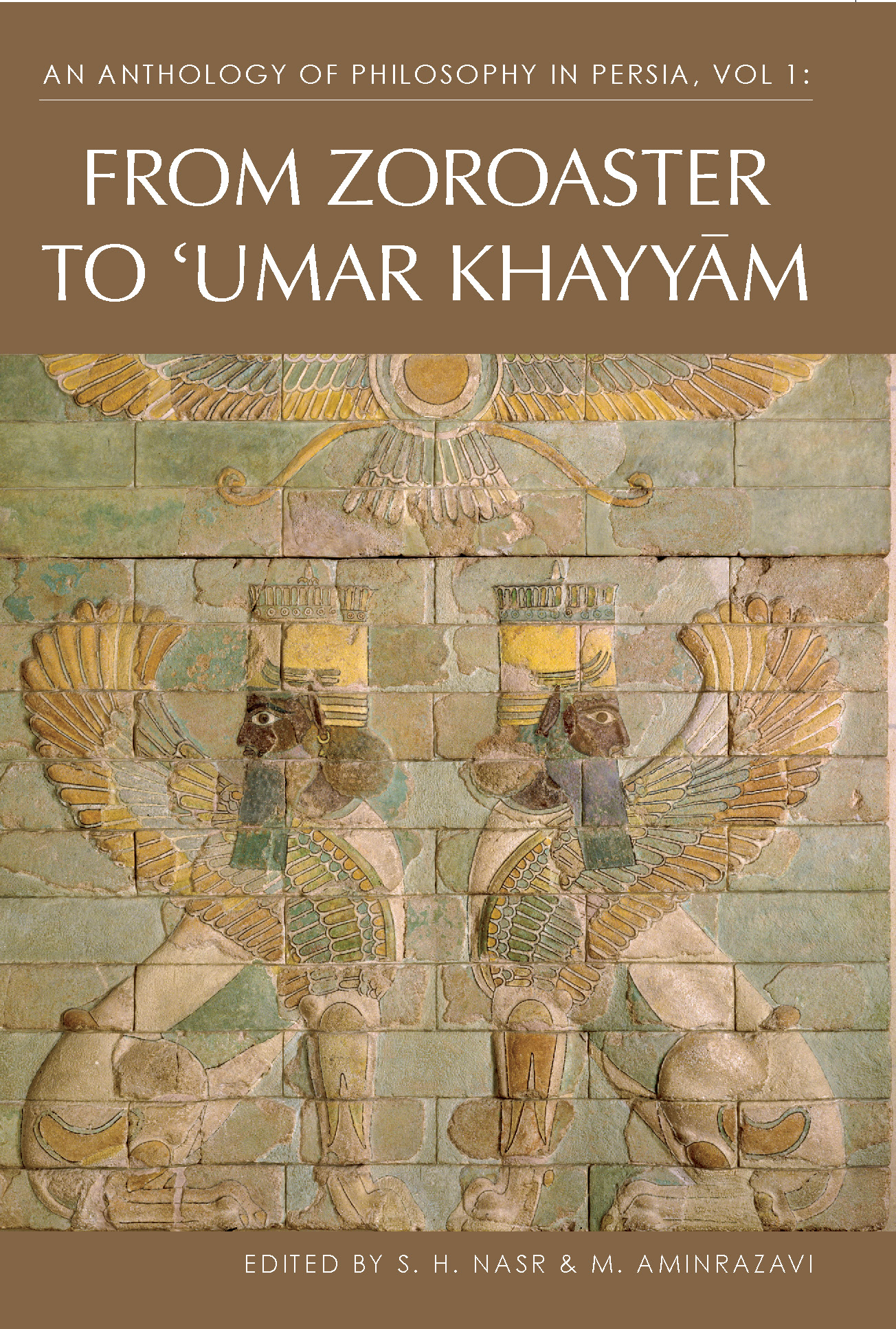The tradition of philosophy in the Persian-speaking world is extraordinarily rich, creative and diverse. This anthology, which is divided into five volumes, aims to communicate something of that richness and diversity. The term ‘philosophy is understood to in its widest sense to include theological debate, philosophical Sufism and philosophical hermeneutics (taʾwīlThe elucidation of the inner or esoteric meaning, bāṭin , from the literal wording or apparent meaning of a text, ritual or religious prescription.). Extending over a period of more than two millennia, and showcasing translations by well-established scholars, the anthology offers full bibliographical references throughout. For anyone interested in exploring, in all their varied manifestations, the fascinating philosophical traditions of Persia, such a wide-ranging and ambitious work will be an indispensable resource. Volume 1 starts with the Zoroastrian period and extends to the time of Biruni and Omar Khayyam, paying special attention to the peripatetic school associated with Ibn Sina (Avicenna). During the pre-Islamic period philosophy was intertwined with religion, and it is within Persian religious texts such as the “Gathas”, the “Denkard”, and the Zoroastrian texts of the “Bundahisn” that philosophical discussions of subjects ranging from metaphysics to cosmology and eschatology are to be found.
Preface M. Aminrazavi
List of Reprinted Works
Note on Transliteration
List of Contributors
Prolegomenon, S. H. Nasr
Part I. Early Persian Philosophy: Zoroastrian Thought
Introduction, M. Aminrazavi
1. The Original Creation (from Bundahišn)
2. Greater Bundahišn
3. The Answers of Manūskihar (from Dādistān-i Dīnīk)
4. Opinions of the Spirit of Wisdom (from Dīnā-i Maīnog-i Khirad)
5. Selected Readings
6. Exegesis of the Good Religion (from Dēnkard VI)
Part II. Early Persian Philosophy: Manichaeism
Introduction, M. Aminrazavi
7. Central Principles (from the Kephalaia)
Part III. Early Islamic Philosophy: The Peripatetics
Introduction, S. H. Nasr
8. Abu’l-ʿAbbās Muḥammad Īrānshahrī
Introduction, M. Aminrazavi
The Ideas of Īrānshahrī (from Zād al-musāfirīn)
9. Abū Naṣr Fārābī
Introduction, S. H. Nasr
A Paraphrase of Aristotle’s Analytica Posteriora (from Kitāb al-burhān)
A Reconciliation of the Opinions of the Two Sages, Divine Plato and Aristotle (from Kitāb al-jamʿ bayn raʾyay al-ḥakimayn Aflāṭūn al-ilāhī wa Arisṭū )
The Perfect State (from Mabādiʾ ārāʾ ahl al-madīnat al-fāḍilah)
10. Abu’l-Ḥasan ʿAmirī
Introduction, S. H. Nasr
Knowledge and the Religious Sciences (from al-Iʿlām bi manāqib al-Islām)
On the Soul and its Fate (from al-Amad ʿala’l-abad)
11. Abū Sulaymān Sijistānī
Introduction, M. Aminrazavi
Philosophical Treatises (Muṣannafāt)
12. Ibn Sīnā
Introduction, S. H. Nasr
Metaphysics (from Dānish-nāmah-yi ʿalāʾī )
Creation Ex-Nihilo and Immediate Creation (from al-Ishārāt wa’l-tanbīhāt)
On Theodicy and Providence I (from al-Shifāʾ)
On Theodicy and Providence II (from al-Ishārāt wa’l-tanbīhāt )
On Time (from al-Shifāʾ )
The Stations of the Knowers (from al-Ishārāt wa’l-tanbīhāt )
Living Son of the Awake (from Risālah Ḥayy ibn Yaqẓān )
Introduction (from Manṭiq al-mashraqiyyīn )
13. Abū ʿAlī Aḥmad ibn Muḥammad Miskawayh
Introduction, S. H. Nasr
Perennial Philosophy (Wisdom) (from al-Ḥikmat al-khālidah or Jāwīdān-khirad)
The Health of the Soul (from Tahdhīb al-akhlāq)
14. Bahmanyār ibn Marzbān
Introduction, M. Aminrazavi
Author’s Foreword (from Kitāb al-taḥṣīl)
Part IV. Early Islamic Philosophy: The Independent Philosophers
Introduction, S. H. Nasr
15. Abū Bakr Muḥammad ibn Zakariyyāʾ Rāzī
Introduction, M. Aminrazavi
Of the Excellence and Praise of Reason (from al-Ṭibb al-rūḥānī)
The Book of the Philosophic Life (from al-Sīrat al-falsafiyyah)
16. Abū Rayḥān Bīrūnī
Introduction, S. H. Nasr
The Belief of the Hindus in God (from Taḥqīq mā li’l-Hind)
Questions and Answers (from al-Asʾilah wa’l-ajwibah)
17. ʿUmār Khayyām
Introduction, M. Aminrazavi
The Necessity of Contradiction, Free Will and Determinism (Ḍarūrat al-taḍādd fi’l-ʿālam wa’l-jabr wa’l-baqāʾ)
Universals of Existence (Kulliyyāt-i wujūdA metaphysical term meaning ‘existence’, employed by philosophically-inclined thinkers such as al-Fārābī (d. ca. 950), Ibn Rushd (d. 1198), al-Suhrawardī and Mullā Ṣadrā (d. 1050/1640). According to Ibn Sina (d…. )
Select Bibliography
Index
Seyyed Hossein Nasr is University Professor of Islamic Studies at George Washington University. He is the author of over 300 articles and thirty books, and has lectured widely on Islamic philosophy.
Mehdi Aminrazavi is the author and editor of numerous books and articles, and is currently Professor of Philosophy and Religion at the University of Mary Washington, where he directs the Middle Eastern Studies Program.

